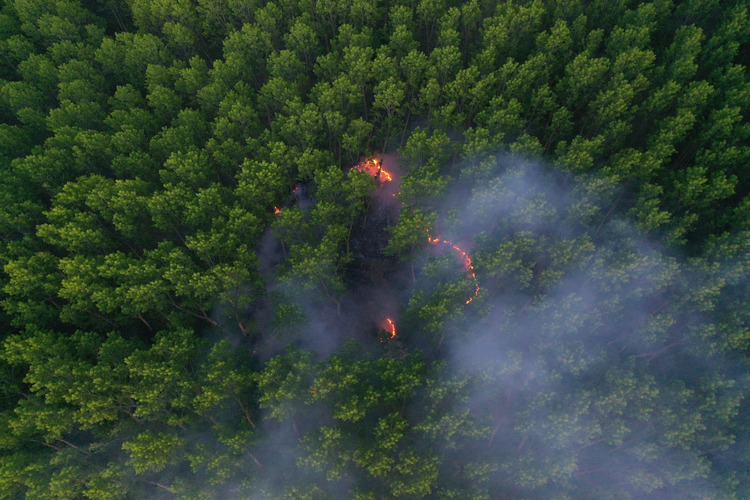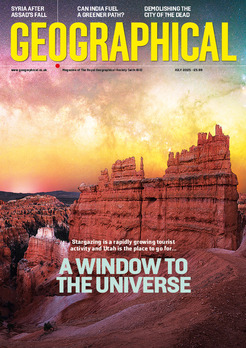
‘Hot Air’ tool collates data from more than 300 individuals & organisations online to track the spread of climate misinformation
By
From theories of wind turbines harming whales to volcanic eruptions causing planetary warming, head to corners of the internet and you will likely find climate misinformation – and disinformation – running rife.
The spread of false information, either deliberately or without malicious intent, can undermine scientific research and cloud public judgment. But now, a new tool has been launched to equip individuals with a better ability to scrutinise the sources they find.
Enjoying this article? Check out our related reads:
Known as ‘Hot Air‘, the tool – developed in partnership with the University of Exeter and supported by Octopus Energy – analysed around 300 individual actors who regularly post online about climate, in ways ranging from scepticism to complete misinformation.
These include UK news outlets TalkTV and GBNews, individuals such as former Fox News commentator Steve Milloy and commentator Katie Hopkins, along with organisations including US climate denial group Heartland Institute.
Once identified, posts from these hundreds of individuals were compiled into a database, and categorised into three groups – those denying climate change; posts which suggested climate change may be real but roll-out of green policies needs to be slowed; and those implying climate change policies are focused more on controlling the public, rather than addressing global warming.

Users of the tool are able to flit through authors, following the trajectory of their claims across several years and even view original posts.
‘We hope that this publicly-available tool will be helpful to inform where people get their information from and interrogate the claims they see across the internet,’ said Data and Graphics Reporter of Tortoise Media Bex Sander.
‘Climate change is the greatest collective existential threat to the future of the planet, and the need for accurate information has never been greater.’
Exposing incorrect climate theories
Using Hot Air, it’s possible to also track posts that have posited several common – and incorrect – theories regarding the climate, such as wildfires being caused by arson and not climate change.
In this case, Hot Air shows 338 results for the claim across its database: the most-viewed post – at more than 150,000 views – a YouTube video from Anonymous Official. Back in 2022, YouTuber Dane Wigington also produced a video on the subject, amassing more than 120,000 views.
Increasingly, YouTube has become a platform hosting climate sceptic posts. According to Tortoise, these types of posts in general grew by 24 per cent from 2021 to 2024. Likewise, X saw a remarkable growth in similar posts, up by more than 40 per cent in the same time period.

Another example of posts purporting incorrect information are those on alleged imminent ‘climate lockdowns’ – claims that governments worldwide are using climate change as a means to enforce strict, totalitarian rules on the public.
Hot Air has traced references to these lockdowns in more than 600 results, including YouTube videos from channel Redacted, along with a podcast from Jordan Peterson. Peterson’s podcast has also been linked by Hot Air to spreading misinformation that carbon dioxide is inherently good for the planet, since it is required for plants to grow. Scientists have long rebuffed such claims, citing that the planetary warming caused by carbon dioxide will produce far more ill-effects.




